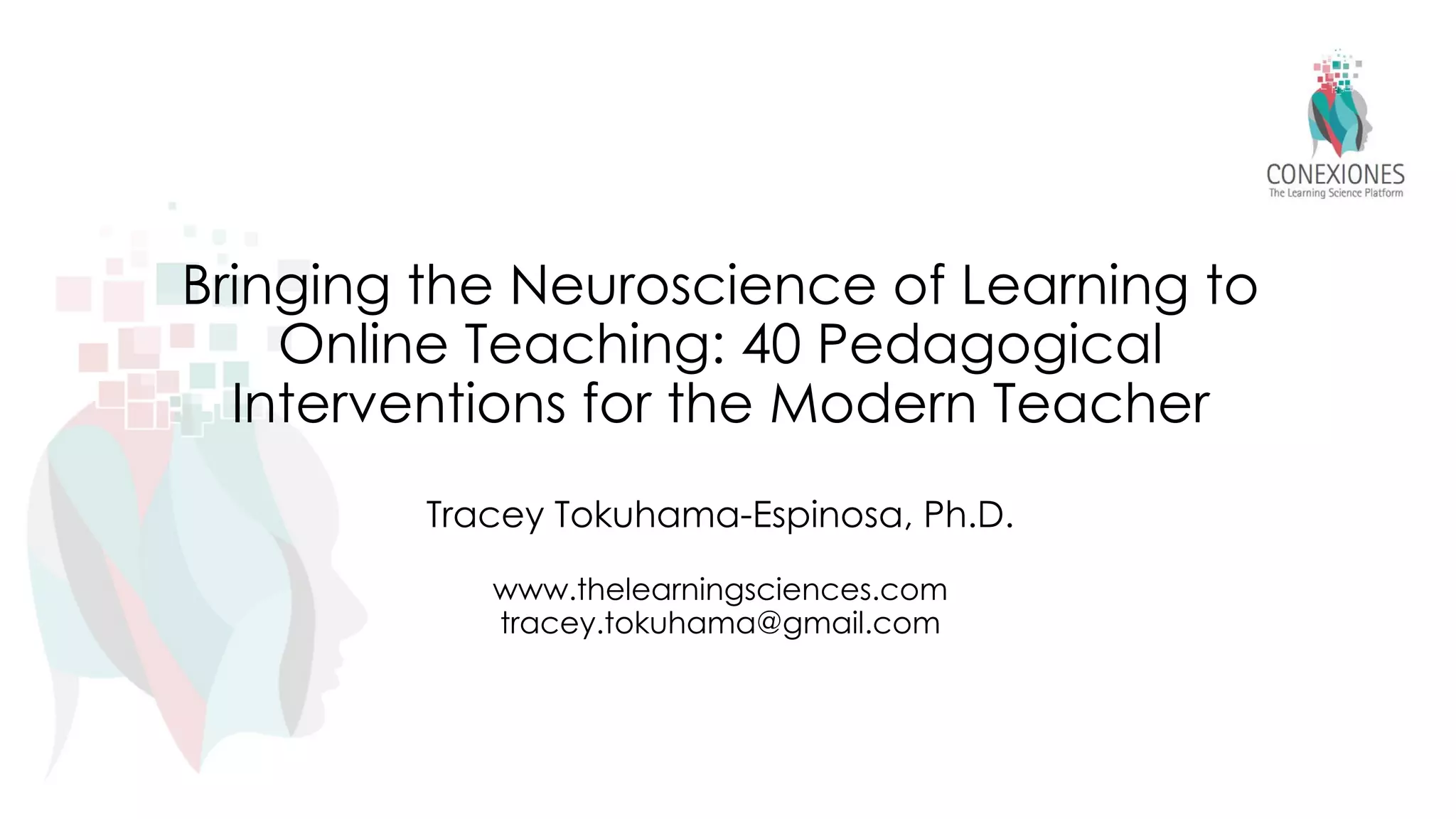The document outlines the integration of neuroscience into online teaching, highlighting key pedagogical strategies and principles that enhance learning. It emphasizes the importance of understanding individual learning processes, the role of emotions, and the need for adaptive teaching methods based on a student’s unique context. The author provides practical interventions and guidelines for educators to improve online learning experiences.



![One-Minute Paper
• Left side: What you KNOW about
the “[teaching online] [the brain
and teaching] [the difference
between good teaching online
and good teaching face-to-face]”
• Right side: What you WANT to
know.
• Chat or Q&A: Write what you want
to know.](https://image.slidesharecdn.com/intedpedadogiescomprimido-210429162340/75/Online-Teaching-40-pedagogical-interventions-Tracey-Tokuhama-Espinosa-Ph-D-4-2048.jpg)

























![Why do myths persist?
Neuromyths are “hypothesis which have been
invalidated [but which] nevertheless leave traces
and of these have captured the wider imagination,
‘myths’ take root (OECD, 2007, pp.108).
1. Over-generalization of scientific findings
(stretching the data beyond its original
purpose)
2. Based on a partial truth
3. Unsubstantiated beliefs or Misconceptions
4. Misinterpretation of data
Tokuhama-Espinosa 2017](https://image.slidesharecdn.com/intedpedadogiescomprimido-210429162340/75/Online-Teaching-40-pedagogical-interventions-Tracey-Tokuhama-Espinosa-Ph-D-30-2048.jpg)


































































































